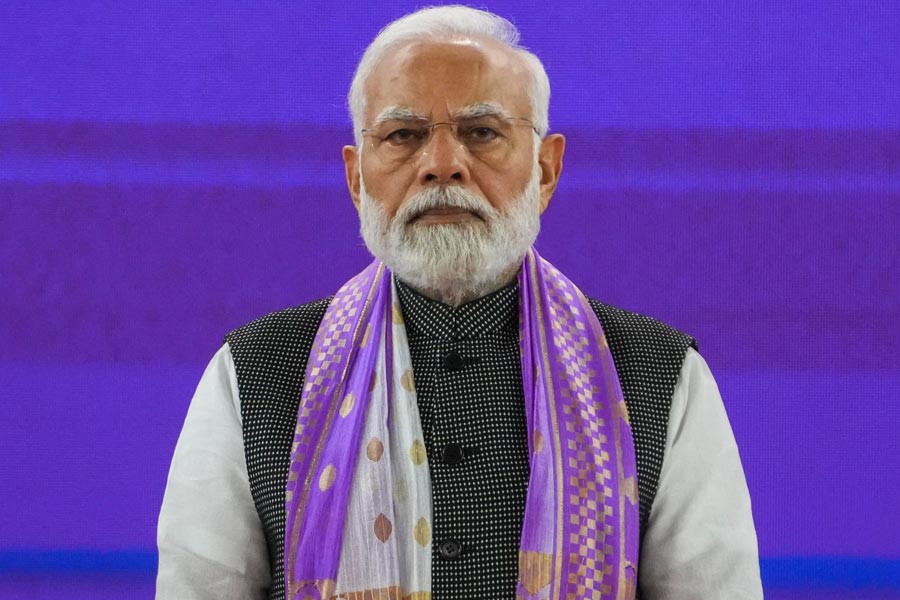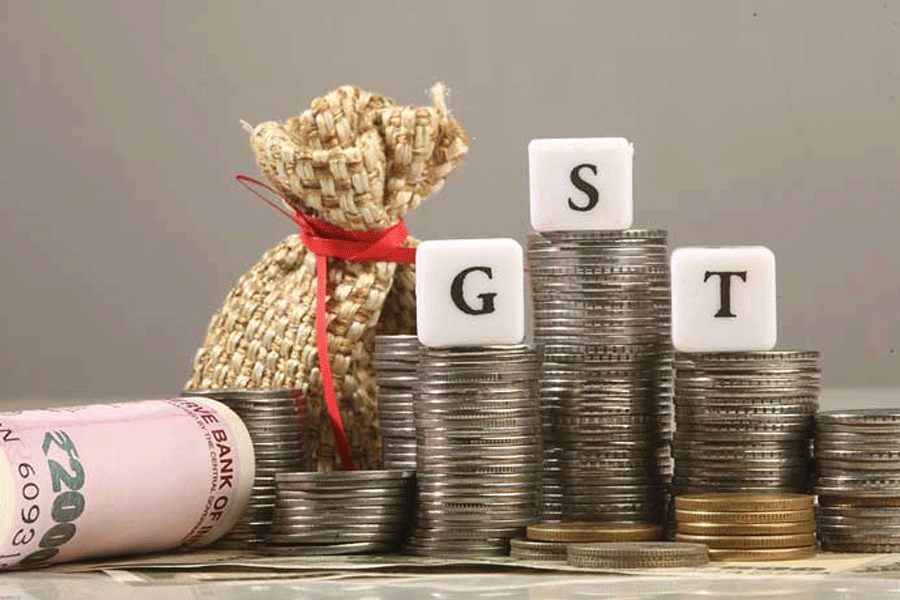The Narendra Modi government’s move to bring the Goods and Services Tax Network within the ambit of the Prevention of Money Laundering Act — the first time a group of resident taxpayers has been covered under the draconian provisions — met with resistance from several state governments at the GST Council meeting on Tuesday.
On July 7, the Centre quietly came out with a notification that obligates the GST authorities to share information with the Enforcement Directorate and the Financial Intelligence Unit (FIU) — the two federal investigators who prosecute money laundering cases.
The GSTN handles the technology backbone of the indirect tax regime and is the repository of all GST-related information including tax returns.
The ostensible reason for issuing the notification is the suspicion that a large number of GST taxpayers are using fake invoices and enriching themselves by claiming unwarranted input tax credits.
Opposition-ruled states, however, suspect that this masks a sinister attempt to harass taxpayers since offenders run the risk of imprisonment of not less than three years which could extend to seven years. In some cases like cheating and criminal conspiracy, imprisonment under PMLA can extend to 10 years.
Moreover, offences under the PMLA are non-bailable.
The PMLA was enacted to tackle terror funding and drug trafficking. The act also provides for confiscation of property acquired through money laundering.
In December 2021, former Chief Justice of India N.V. Ramana had slammed the Enforcement Directorate for invoking provisions under the PMLA indiscriminately even for minor offences.
At the 50th meeting of the GST Council on Tuesday, several state finance ministers expressed concern over the move to widen the ambit of PMLA to cover the GST Network.
“A lot of finance ministers raised the issue.... Delhi, Punjab, West Bengal, Tamil Nadu, Himachal Pradesh, Karnataka, Chhattisgarh, Telangana and Rajasthan have voiced their concern and said that it should be discussed in the GST Council,” Delhi finance minister Atishi told reporters here.
The Congress said this would allow the ED to arrest any trader. “We will oppose this anti-trader policy of the Modi government, as this endangers millions of traders who are at the receiving end of a complicated GST regime,” party spokesperson Pawan Khera tweeted.
Tamil Nadu finance minister Thangam Thennarasu said in an official release: “This is against the interest of traders and against the basic objective of decriminalising violations under the Goods and Services Tax Act. Therefore, theTamil Nadu government is opposed to this considering that it will affect traders across the country, especially small traders.”
Harpal Singh Cheema, finance minister of AAP-ruled Punjab, said the move amounted to “tax terrorism” and would spook small businessmen.
The GST Council decides on all issues relating to the goods and services tax by consensus and in a spirit of cooperative federalism but that has all but evaporated since the indirect tax levy came into existence in July 2017.
The government tried to downplay the controversy by claiming that the GST authorities would not be sharing information with the ED; rather it would be the other way round.
Revenue secretary Sanjay Malhotra said: “Under the recent finance ministry notification, it is clarified that it will only empower our tax authorities with more information. GSTN will be the recipient of information.
“It was clarified that ED is not getting any information, neither is it providing any information through this notification. The director of the FIU shall provide information to empower authorities wherever they feel there’s a chance of tax evasion or money laundering.”
Tax experts, however, do not believe this.
Abhishek Jain, KPMG National Head & Partner, Indirect Taxes, said the move would help the ED investigate GST evasions. “Given the detailed financial disclosures under GST, such information should help the larger investigation objectives of ED and also aid GST recovery in the big tax evasion cases,” he added.
AMRG & Associates Senior Partner Rajat Mohan said bringing the GSTN within the ambit of the PMLA would enable a legal framework under which high-value tax offenders can be traced, apprehended and made liable to pay due taxes.
“The GSTN can pass on relevant information on probable tax offenders to jurisdictional officers so as to initiate proceedings under GST law for scrutiny, adjudication and recovery of taxes,” Mohan added.
Nangia Andersen LLP Partner Sandeep Jhunjhunwala said the inclusion of the GSTN under the PMLA would facilitate the mutual sharing of information or material in possession of the Enforcement Directorate with the GSTN if they have reason to believe that the provisions of the GST Act have been contravened in any manner.
“Under Section 158 of the GST Act, the government’s officers can disclose information to aid any prosecution under the Indian Penal Code (IPC) or any other law for the time being in force. However, there was no corresponding power under PMLA to disclose information to GSTN unless notified under Section 66(1)(ii) of PMLA. With the current notification, GSTN has now been included in the list,” Jhunjhunwala said.
In November last year, the government had allowed the ED to share information about economic offenders with 15 more agencies, including the Serious Frauds Investigation Office (SFIO), Competition Commission of India (CCI) and the National Investigation Agency (NIA).
Besides the ED and the FIU, other agencies are also obliged to share information with investigating agencies. At present the list includes the Competition Commission of India, Reserve Bank of India, Securities and Exchange Board of India, Insurance Regulatory and Development Authority of India, the Serious Frauds Investigation Office, and the Director General of Foreign Trade. With the addition of the GSTN, the number of entities now stands at 26.












